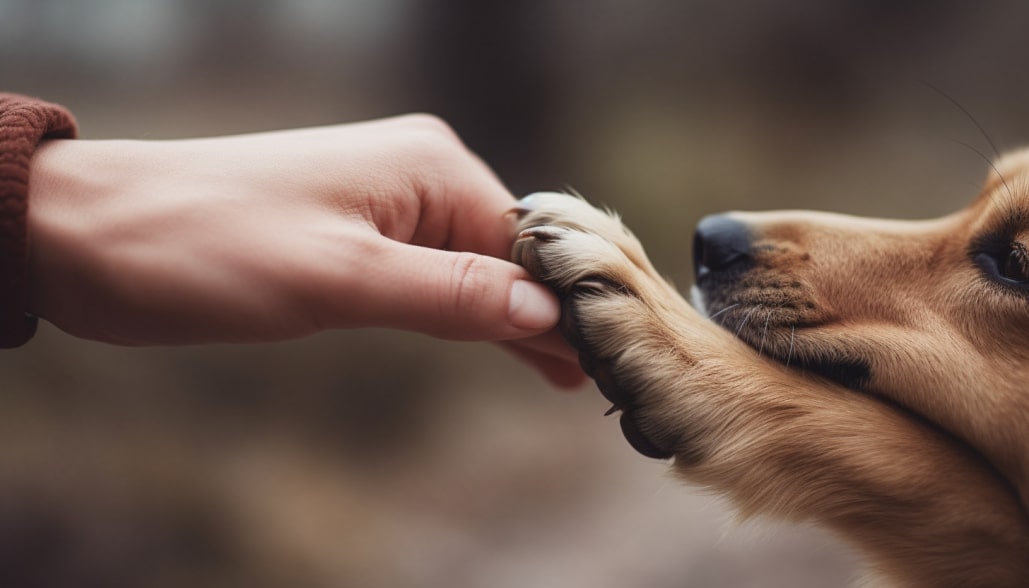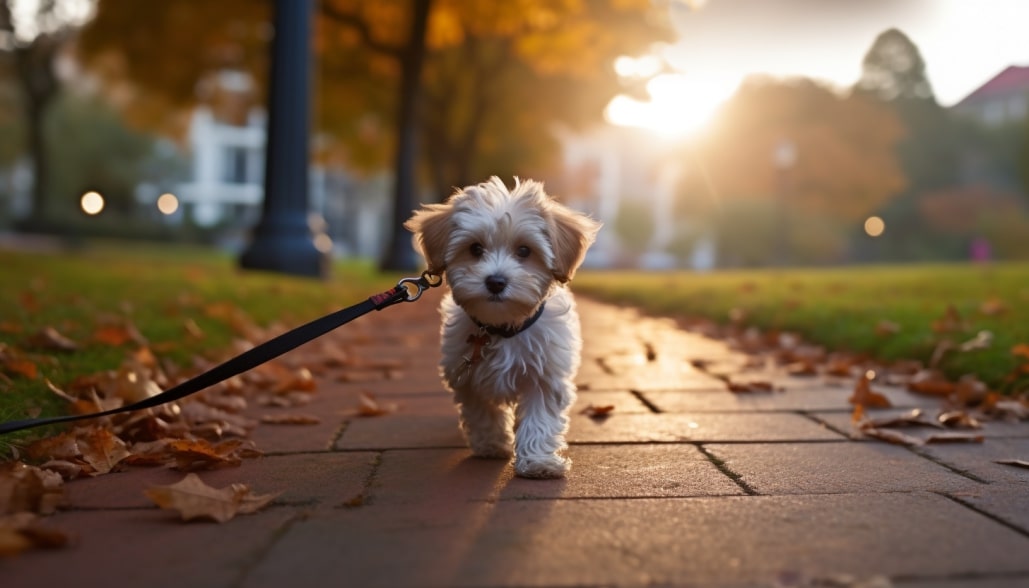
🐾 Puppy Training Mastery: Your Guide to a Well-Behaved Pup!
Embarking on the journey of puppy training in Vancouver, British Columbia, can be an exciting and rewarding experience for both you and your furry friend. By understanding the importance of early training, selecting the most effective methods, and tapping into local resources, you’re setting yourself up for success. This comprehensive guide will help you navigate the world of puppy training, overcoming challenges, and celebrating your pup’s milestones along the way.
The Importance of Puppy Training
Training your puppy is essential for various reasons, including developing a strong bond, preventing unwanted behavior, and ensuring their safety and well-being. By starting early and investing time and effort into training, you’ll not only create a happy, well-behaved companion but also improve your relationship with your furry friend.
Building a strong bond with your pup
Establishing a strong bond with your puppy is crucial for a healthy and lasting relationship. Training helps you develop trust and mutual understanding, making it easier for your pup to follow your guidance and look to you as their leader. By spending quality time together during training, you’ll forge a deep connection that will last a lifetime.
Preventing unwanted behavior
Puppy training is essential for curbing unwanted behavior before it becomes a problem. Through consistent and positive reinforcement, your pup will learn to understand your expectations and develop good habits from an early age. This proactive approach can save you countless hours of frustration and prevent potentially dangerous situations.
Ensuring safety and well-being
A well-trained puppy is a safe puppy. By teaching basic obedience commands, you’re giving your pup the tools they need to navigate the world safely and confidently. This includes responding to life-saving commands like “come,” “stay,” and “leave it,” which can prevent accidents and keep your pup out of harm’s way.
Key takeaways:
- Puppy training is essential for building a strong bond, preventing unwanted behavior, and ensuring safety.
- Training helps establish trust and understanding, fostering a deep connection with your pup.
- Teaching basic obedience commands can save your puppy from dangerous situations.

Choosing the Right Training Method
There are various training methods available, and it’s essential to choose the right one for you and your pup. Some of the most popular techniques include positive reinforcement, clicker training, and lure and reward. Understanding your puppy’s learning style will also help you tailor your approach for the best results.
Positive Reinforcement
Positive reinforcement is a highly effective training method that focuses on rewarding desirable behavior, rather than punishing undesirable actions. By using treats, praise, or toys as rewards, you encourage your puppy to repeat the good behavior, making it more likely to stick.
Clicker Training
Clicker training is a form of positive reinforcement that uses a small handheld device to make a distinct clicking sound. The clicker is used to “mark” the precise moment your pup performs the desired behavior, followed by a reward. This technique helps your puppy understand exactly what action earned them praise, making it easier for them to learn new commands quickly.
Lure and Reward
The lure and reward method involves using a treat or toy to guide your puppy into performing a specific action. Once your pup successfully completes the behavior, they receive the reward. This approach is particularly useful for teaching basic commands, such as “sit” and “down.”
Local Vancouver Puppy Training Classes
Taking advantage of local Vancouver puppy training classes is an excellent way to access expert guidance and resources. Group classes provide socialization opportunities and help your pup acclimate to various distractions. This section will explore the benefits of group training, introduce top Vancouver training facilities, and discuss online training options for local residents.
Benefits of group training
Group training classes offer several advantages for both you and your pup. In a group setting, your puppy will learn essential socialization skills by interacting with other dogs and people. Additionally, group classes expose your pup to a range of distractions, helping them learn to focus on you amidst various stimuli. Lastly, group classes provide an opportunity for you to connect with other puppy parents and learn from their experiences.
Top Vancouver training facilities
Vancouver, BC, boasts several reputable training facilities to help you on your puppy training journey. Some of the top options include:
Before committing to a facility, research their training methods, read reviews, and ensure they align with your goals and values.
Online training options for Vancouver residents
If in-person group classes are not a feasible option for you, consider online training resources. Many local Vancouver training facilities offer virtual classes, giving you access to expert guidance from the comfort of your home. Online courses also allow you to work at your own pace and review material as needed.
Key takeaways:
- Group training classes provide socialization opportunities and help your pup learn to focus amidst distractions.
- Vancouver offers numerous reputable training facilities, such as DogSmart Training, Bravo Dog Training, and Canine Solutions Dog Training.
- Online training options are available for those who prefer a virtual learning environment.
Essential Training Commands & Techniques
Teaching your puppy essential commands and techniques is crucial for their safety and overall development. In this section, we’ll cover some of the most important skills, including “sit,” “stay,” “come,” crate training, leash walking, and socialization.
Sit
The “sit” command is a fundamental skill every puppy should learn. This basic command helps establish your leadership and provides a foundation for more advanced training. To teach your pup to sit, use the lure and reward method, guiding them into a sitting position with a treat, then rewarding them once they comply.
Stay
“Stay” is another vital command that helps keep your pup safe and under control. To teach “stay,” have your puppy sit, then give the “stay” command while holding your hand out, palm facing them. Gradually increase the distance and duration of the stay, rewarding your pup for their patience and obedience.
Come
The “come” command is essential for your puppy’s safety, allowing you to call them back if they’re in a dangerous situation. To teach “come,” start by using a long leash andrewarding your pup each time they respond to your call. Gradually increase the distance and eventually practice off-leash in a secure area.
Crate Training
Crate training can be an invaluable tool for house training, creating a safe space for your pup, and preventing destructive behavior. Start by introducing your puppy to their crate with positive associations like treats and praise. Gradually increase the time they spend in the crate, always ensuring it remains a comfortable and positive experience.
Leash Walking
Teaching your pup to walk on a leash is crucial for their safety and the enjoyment of your walks together. Begin by getting your puppy accustomed to wearing a collar and leash. Practice walking in a controlled environment, rewarding your pup for staying close and maintaining a loose leash. Be patient and consistent in your training, as leash walking can take time to master.
Socialization
Proper socialization is vital for your puppy’s development, helping them become a well-adjusted and confident adult dog. Expose your pup to various people, environments, and other animals during their early months. Positive socialization experiences will help prevent fear, anxiety, and aggression later in life.
Key takeaways:
- Essential training commands include “sit,” “stay,” “come,” crate training, leash walking, and socialization.
- Be patient and consistent in your training, as mastering these skills takes time and practice.
- Proper socialization is crucial for your pup’s development and overall well-being.
Overcoming Common Puppy Training Challenges
Puppy training can present various challenges, but with patience and consistency, you can overcome them. In this section, we’ll discuss strategies for maintaining consistency, dealing with distractions, and addressing fears and anxiety.
Consistency and patience
Consistency is critical when training your puppy. Stick to a routine, use the same commands and rewards, and ensure all family members are on board with the training plan. Patience is equally important, as your pup may not always grasp new concepts immediately. Remain calm and composed, and celebrate small victories along the way.
Dealing with distractions
Distractions are a common challenge during puppy training. To help your pup maintain focus, start training in a quiet, controlled environment before gradually introducing distractions. Reward your puppy for maintaining their focus on you despite the distractions, reinforcing their ability to concentrate amidst various stimuli.
Addressing fears and anxiety
Puppies may experience fear or anxiety during training, which can hinder their progress. If your pup is fearful or anxious, take a step back and identify the source of their distress. Modify your training approach to help your pup feel more comfortable, using positive reinforcement and gradual exposure to the stressor.
Key takeaways:
- Consistency and patience are crucial for overcoming training challenges.
- Train in a controlled environment before introducing distractions.
- Address fears and anxiety by modifying your approach and using positive reinforcement.
Celebrate Your Puppy Training Success 🎉
As you progress through your puppy training journey, it’s important to celebrate your success and acknowledge milestones. Create a positive environment for continued learning and growth, and remember to cherish the bond you’re building with your pup.
Acknowledging milestones
Recognize and celebrate your puppy’s achievements, big and small. This not only boosts their confidence but also reinforces their good behavior and motivates them to continue learning.
Creating a positive environment
Maintain a positive and encouraging atmosphere during training sessions. This will help your pup enjoy the learning process and stay engaged in their training.
Continuing education and growth
Puppy training is an ongoing process. As your pup masters the basics, continue to challenge them with new skills and experiences to keep them engaged and stimulated. Lifelong learning and growth will contribute to your dog’s overall well-being and happiness.
Key takeaways:
- Celebrate your puppy’s milestones to boost their confidence and motivation.
- Create a positive environment during training sessions for continued success.
- Continue to challenge your pup with new skills and experiences throughout their life.
Unleash Your Puppy’s Full Potential! 🐾
Training your puppy is an essential part of their development and well-being. By investing time and effort into early training, you’ll create a happy, well-behaved companion and deepen your bond with your furry friend. Use this comprehensive guide to navigate the world of puppy training in Vancouver, overcome challenges, and celebrate your pup’s achievements along the way.
Frequently Asked Questions
How early can I start training my puppy?
You can begin training your puppy as soon as they come home, typically around 8 weeks old. Early training helps establish good habits and prevents unwanted behavior.
How long does it take to train a puppy?
The duration of puppy training varies depending on your pup’s learning style and the consistency of your training sessions. Be patient and persistent, and remember that training is an ongoing process.
What if my puppy isn’t responding to a specific training method?
Every puppy is unique, and some may not respond well to certain methods. If your pup isn’t responding to a particular technique, try a different approach and tailor your training to suit their preferences.
How often should I train my puppy?
Short, daily training sessions are ideal for young puppies. Aim for 10-15 minutes per session, several times a day, to keep your pup engaged and eager to learn.
Can I train my puppy on my own, or should I seek professional help?
Many puppy parents successfully train their pups at home using resources like books, videos, and online courses. However, if you’re struggling or have specific concerns, seeking professional guidance through a local Vancouver training facility can be beneficial.
Sources
- “Positive Reinforcement Training.” The Humane Society of the United States, 2023, www.humanesociety.org/resources/positive-reinforcement-training#:~:text=Positive%20reinforcement%20training%20uses%20a,or%20changing%20your%20dog’s%20behavior. Accessed 26 May 2023.
- Gibeault, Stephanie. “How to Use Clicker Training to Communicate with Your Dog.” American Kennel Club, American Kennel Club, 15 Aug. 2022, www.akc.org/expert-advice/training/clicker-training-your-dog-mark-and-reward/. Accessed 26 May 2023.
- Gibeault, Stephanie. “Does Your Dog Only Listen When a Treat Is Involved? Top Tips for Lure-And-Reward Training.” American Kennel Club, American Kennel Club, 12 July 2018, www.akc.org/expert-advice/training/lure-reward-training-dogs/. Accessed 26 May 2023.
- Millan, Cesar. “How to Train Your Puppy! (with Cesar Millan).” YouTube, YouTube Video, 14 Apr. 2022, www.youtube.com/watch?v=ugan8JlyPho. Accessed 26 May 2023.


